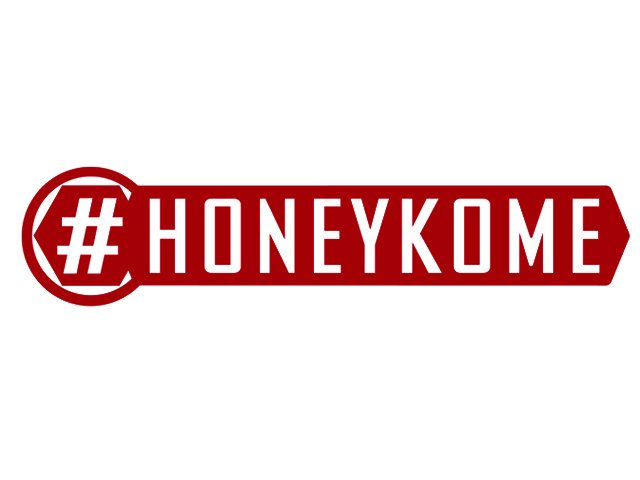By Pierre Cassuto, General Manager of HoneyKome
Pierre Cassuto, General Manager of HoneyKome (an Ole! Media Group company), explains why being asked for a ‘content’ strategy irks him and how companies can ‘swim’ on their own in the digital pool
The advent of the Internet and smartphones has democratised production, publishing and broadcasting. Anyone with access to both of these can now have a public voice and build an audience by creating ‘content’.
But pundits, commentators, media houses and agencies have done the entire world a great disservice by constantly referring to the sum of it all, as "digital content". It only takes one quick look at your Facebook timeline to see the swamp that news, gossip, popular opinion, adverts, PR and entertainment has become.
All content is not equal
Our languages and our words influence how we construe the world around us. ‘Content’ brings every act of creation to an equal base level. Obama's speech at Nelson Mandela's funeral and a tweet from Donald Trump are both counted as ‘content’. Investigative journalism and a populist opinion piece without foundation, are ‘content. Game of Thrones and a Happy Friday post from KFC are ‘content’. A user manual for your alarm clock in 47 languages and a customer's angry post about your warranty conditions, are also ‘content’.
‘Content’, is a fitting meta description but so is ‘stuff’ or ‘crap’. Everything can be construed as stuff and right now my social timelines are full of crap. I wonder how Picasso, Mozart or Shakespeare would have felt if their work had been remembered by history as ‘content’. In any case, I'm pretty sure, they didn't set out to produce ‘content’.
Media suffers because of ‘content’. Democratic societies suffer because of ‘content’. And, so do marketers and businesses that are investing blindly in ‘content’.
Valuable content is king
Businesses need to stop asking their agencies to vomit useless branded content all over the Internet. Rather, they need to think about creating truly valuable pieces and experiences that benefit existing and potential customers or society at large. "Happy Friday" doesn't quite cut it.
‘Content marketing’ was initially used to describe a new way of thinking for businesses. It was an opportunity for businesses to now communicate directly with customers and prospects, without being constrained by an intermediary and its prescribed formats. It was an opportunity for businesses to invite creators, collaborate and broadcast without the need for a media intermediary. It was an opportunity for businesses to harness the creativity of their own employees, turn them into ambassadors or industry thought leaders without the permanent need for agencies.
Instead, agencies climbed on the bandwagon and sold ‘content’ as a different colour of polish on advertising, and most marketers simply paid them to take control of this for them as well.
Instead of being an opportunity, it was just another channel now taken care of. Phew! Check!
As someone with a media and production background, now running a digital agency, nothing irks me more than being asked for ‘content’ or a content strategy’. If you don't know what you want to talk about, why do you need one?
Yet, it's something we list on our credentials and sell, because it's what clients ask for specifically.
Fixing the problem
Here are my suggestions to fix this situation and improve everyone's lives:
1. Stop using the word ‘content’ - Poof. Gone. Describe each thing you want to produce in a full sentence as a minimum. Call it a ‘format’ or a ‘feature’. Say out loud why you think it's cool. If it sounds stupid or not worth anyone's time, don't do it.
2. Take ownership of your ‘publishing strategy’ - First of all, it sounds more professional. Then it forces you to think about your audience, how your formats and features fit together; how you fit with other publishers, and how you will track ROI for this new venture.
3. Use your own people - Let them contribute to the narrative of your business. If you don't trust them or like what they have to say, you probably have deeper problems at play here. Also, the fresh out of varsity community manager from your agency, who comes up with your amazing monthly ‘content’ calendar by her/himself, probably doesn't understand your business or customers as well as your in-house team.
4. Look at the details of the stats and the comments you earn - Ask people what they think. Engage with people; don't just trust your amazing ‘engagement’ metrics. Accept that not everyone will have nice things to say and be gracious about it. Give people what they want, within the confines of what remains authentic for your brand, values and business.
5. Look to artists, media and production professionals to learn from them and help you lift your game - Invite them as contributors but retain control of your voice, editorial strategy and audience proposition.
Harness creativity
Taking full advantages of the promises of ‘content marketing’ means going beyond ‘content’ and harnessing the creativity within your organisation, while breaking down the manufactured walls between you and your customers or prospects. It's an amazing, exciting opportunity that can help with your reputation, sales and culture.
As an agency, it's a journey we try to guide our clients through, knowing we are ultimately teaching them to swim just fine without us. We think that they'll still invite us over to their pool, just because they like and trust us. And if there is something new they need to learn or want to try out, they'll probably ask us first.





